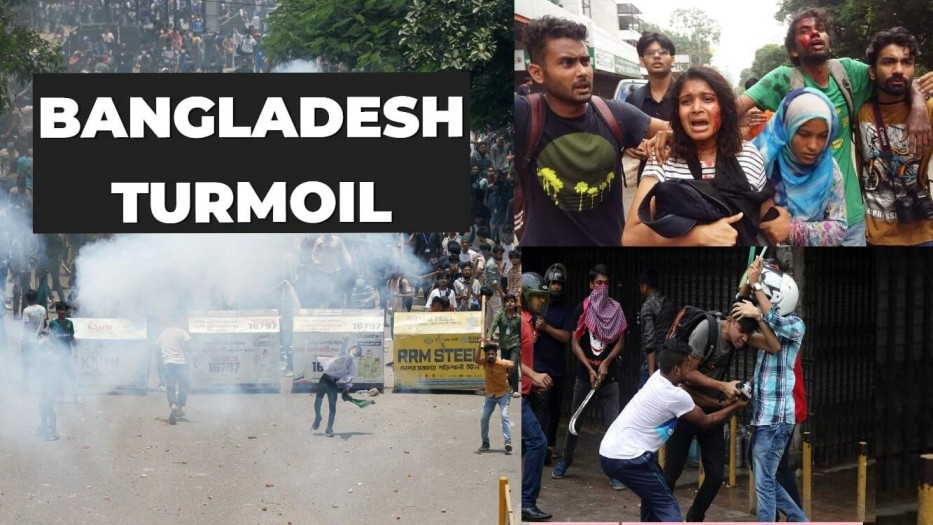Dhaka: Bangladesh, a nation of over 170 million, finds itself at a critical juncture as recent political and economic turmoil reverberates throughout the country and beyond. The ongoing crisis poses significant risks not only to Bangladesh’s stability but also to the global economy and regional dynamics.
Historical Context: A Nation Born in Conflict
To grasp the gravity of the current turmoil, it’s essential to understand Bangladesh’s historical backdrop. Emerging from the bloody partition of India in 1947, which displaced millions and caused widespread violence, Bangladesh’s path to independence was marked by the 1971 Liberation War against Pakistan. Since gaining sovereignty, the Awami League, under the leadership of the Sheikh Hasina family, has been a dominant force in politics. Despite its pivotal role in Bangladesh’s independence, the party faces criticism for becoming increasingly autocratic and elitist. Recent policies, such as reinstating a quota system favoring descendants of freedom fighters, have further fueled social unrest.
The Devastating Impact on Bangladesh’s Economy
The current political and economic turmoil is wreaking havoc on Bangladesh’s economy. Once considered a rising star, the nation now confronts a severe crisis that threatens its economic progress.
The unrest has sharply eroded investor confidence, with both domestic and international investments drying up. This decline jeopardizes Bangladesh’s aspiration to graduate from the Least Developed Countries list by 2026, as projected by the World Bank. Additionally, the economic strain on remittances—vital to Bangladesh’s economy—could deter overseas workers from sending money back home, further destabilizing economic conditions.
The crisis also jeopardizes the stability of the banking sector. Bank runs and plummeting deposits could trigger a liquidity crisis, impacting businesses and individuals alike. Supply chain disruptions and decreased economic activity are driving inflation, which erodes consumer purchasing power.
Moreover, the ongoing violence has prompted a brain drain, as skilled workers and professionals flee the country. This exodus threatens long-term economic development. The garment industry, a cornerstone of Bangladesh’s economy, has been severely impacted, with factory closures and job losses. Strikes, protests, and curfews disrupt business operations and supply chains, exacerbating the economic downturn.
Beyond Borders: Global Implications
Bangladesh’s crisis extends beyond its borders with significant global implications. The country’s role as a major textile producer means that the shutdown of garment factories has caused worldwide supply chain disruptions, resulting in shortages, increased prices, and potential job losses in importing countries.
The instability also risks exacerbating regional tensions and may create openings for extremist groups. A deteriorating security environment in Bangladesh could impact global counterterrorism efforts and regional stability.
The Road to Recovery
Addressing Bangladesh’s crisis requires a comprehensive strategy. The government must prioritize restoring law and order, safeguarding minority rights, and fostering a stable environment for businesses. International support—both financial and technical—will be crucial in rebuilding the economy and promoting long-term stability.
Given the dynamic nature of the situation, ongoing monitoring and assessment are vital. Developing effective response strategies will depend on a clear understanding of the evolving challenges and the coordinated efforts of both national and international stakeholders. The newly formed government under Prime Minister Muhammad Yunus must cultivate cooperative relationships with India and other neighboring countries. Hostile relations would be counterproductive, potentially destabilizing Bangladesh and hindering its progress.
The current crisis in Bangladesh is not only a national emergency but a global concern with widespread economic and security implications. The road to recovery will be arduous but is essential for the country’s future stability and prosperity.
The views and opinions expressed in this article are those of the author and do not necessarily reflect the views or positions of any entities they represent and The Credible India.
Follow us on Facebook, X, YouTube & Instagram to never miss an update from The Credible India

